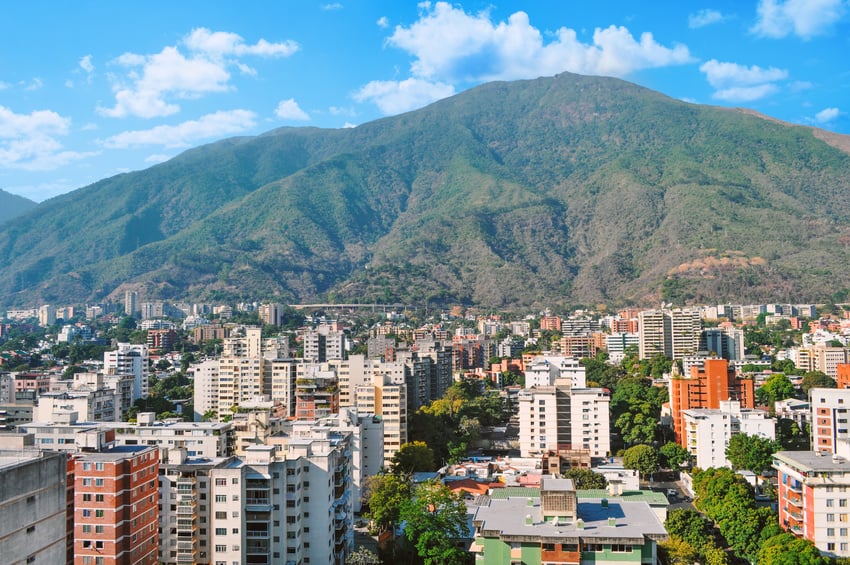In brief
On 1 September 1 2020, the National Superintendence of Cryptoassets and Related Activities (“SUNACRIP”) issued Administrative Guidelines No. 057-2020, which established the requirements and procedures for delivering and receiving cryptoassets remittances to individuals in Venezuela (“Guidelines”)1
The Guidelines apply to individuals that send cryptoassets remittances to Venezuela, and individuals domiciled in Venezuela who receive them. Although article 1 of the Guidelines establishes they apply to individuals and legal entities, the rest of the rules regulate remittances only between individuals.
The Guidelines entered into force on 1 September 2020 and repealed Administrative Guidelines No. 009-2019 (V. Official Gazette No. 41,581 of 7 February 2019).
In further detail
- Platform for the remittance procedure.
Persons will carry out the remittance procedure in cryptoassets through the “Patria” Platform (“Platform”).2 - Definitions.
The Guidelines adopted these definitions:- Receiver. Individual of legal age and domiciled in Venezuela, that receives cryptoassets remittances from abroad.
- Issuer. Individual that sends cryptoassets remittances to a receiver in Venezuela through digital mechanisms.
- Cryptoasset. Digital asset that uses cryptography and distributed registries as a base to function.
- Remittance procedure in cryptoassets.
- Maximum limit of remittances. The beneficiary may receive cryptoassets remittances up to the equivalent value to 14 Sovereign Cryptoassets (“Petros”)3 (14 PTR) per month4.
- SUNACRIP may exceptionally authorize a higher amount, with a previous motivated request by the beneficiary, of up to the equivalent value of 50 Petros (50 PTR).
- Receiver information. The issuer may remit any allowed crypto-asset, and must provide the Platform with the information of the beneficiary (e.g., identity card number, date of birth and other requested information).
- Currency or cryptocurrency of the procedure. The Platform may allow the issuer to specify if the remittance should be received in Bolivars, Petros, or in the same cryptocurrency used by the issuer.
- When the Platform liquidates the remittance through a currency or cryptocurrency different from the one sent, it will deliver the remittance to the beneficiary in the agreed form and he/she may dispose of the total remittance to offer it to the Exchange System of Currencies and Cryptocurrencies.
- Transfer of the amount. The beneficiary may process through the Platform the complete transfer of the received amount to the banking system, or have those remittances in any system offered by the Platform.
- Estimation of the crypto-asset’s value. To estimate the value of the cryptoasset remitted, the Euro’s value will be taken as a reference, using the exchange rate established by the Central Bank of Venezuela5, and the one corresponding to the crypto-asset in the terms established by SUNACRIP and the Platform at the date and time of the operation.
- Financial commission. The issuer has to pay a financial commission to the Platform for its maintenance.
- Amount of the commission. The amount must be at least 0.25 Euros per transaction and may not be greater than 10% of the amount received by the beneficiary.
- Moment and estimation of the commission. The amount of the commission is expressed when the remittance is sent in the currency or cryptocurrency requested by the issuer. The percentage of the commission will depend on the currency or cryptocurrency of the remittance, subject to the mentioned caps.
- Maximum limit of remittances. The beneficiary may receive cryptoassets remittances up to the equivalent value to 14 Sovereign Cryptoassets (“Petros”)3 (14 PTR) per month4.
- Information requests.
SUNACRIP reserves the right to requests, through the means it deems appropriate, any information or documentation to the issuer and beneficiary of the remittance, to guarantee transparency of the operations referred to in the Guidelines.
1 V. Administrative Guidelines No. 57-2020 “Applicable to cryptoassets remittances in the Bolivarian Republic of Venezuela” (Official Gazette No. 41,955 of 1 September 2020). SUNACRIP issued the Guidelines based on article 20 (1), (10) and (12) of the Constituent Decree about the Integral System of Crypto-assets (Official Gazette No. 41,575 of 30 January 2019).
2 V. https://www.patria.org.ve and https://remesas.patria.org.ve
3 V. www.petro.gob.ve/calculadora.html
4 Background and related information: Baker McKenzie, “Constituent Decree on Cryptoassets and the Sovereign Cryptocurrency Petro”, on https://bakerxchange.com/rv/ff003a67204386781c1da3cb0146b9dc0311f77d; “Obligation to register economic information and events expressed in Sovereign Crypto-assets”, on https://bakerxchange.com/rv/ff0055f58b8d4de7e7638c7fa0448f1364c0fb8c/p=6090735; and “Regulations for the Accounting Registries of Transactions with Cryptoassets in Venezuela” on https://bakerxchange.com/rv/ff005850a06ee95cf300d881ac4c87b8996229c2/p=3674629
5 V. https://www.bcv.org/



